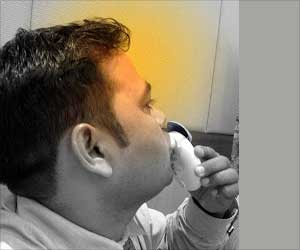
- Rapid weight loss from medications like tirzepatide can cause thyroid complications, especially in patients with hypothyroidism
- Unmonitored use of levothyroxine during weight loss can lead to thyrotoxicosis, increasing the risk of atrial fibrillation
Regular follow-up appointments are crucial to ensure medication doses are adjusted according to weight changes
When a medication designed to help you shed excess weight also triggers a life-threatening complication, it feels like a cruel twist of fate. This was the case for a 62-year-old man, battling obesity, hypothyroidism, and type 1 diabetes, who presented to the emergency room with alarming symptoms: palpitations, excessive sweating, confusion, fever, and hand tremors.
On arrival, a quick electrocardiogram (ECG) revealed he was in atrial fibrillation, a dangerous irregular heart rhythm that requires immediate attention. As the doctors scrambled to stabilize him, they began digging into his medical history- and that’s when the dots began to connect.
Advertisement
Patient’s Medical Background: Obesity, Hypothyroidism, and Type 1 Diabetes
This 62-year-old patient wasn’t new to health challenges. For years, he had been managing a cocktail of chronic conditions- obesity, autoimmune hypothyroidism, and type 1 diabetes. He was on a daily regimen of insulin for diabetes, and for his thyroid, he had been taking 200 mcg of levothyroxine daily. Additionally, just six months ago, his doctor had prescribed tirzepatide, a relatively new medication used to help with weight loss and type 2 diabetes management.
At that time, his weight had peaked at 132 kg, giving him a body mass index (BMI) of 44.4, putting him well into the obese category. His doctor had started him on a low dose of tirzepatide- 2.5 mg weekly- with the recommendation to slowly increase the dose every 4 weeks as tolerated. The plan was to follow up in a month, but due to the patient’s seasonal living arrangements in different states, he missed his appointment. However, he kept increasing the dose of tirzepatide up to 10 mg weekly, just as his doctor had advised.
Advertisement
Dramatic Weight Loss: The Beginning of the Crisis
Six months later, the patient had lost a staggering 36 kg, bringing his weight down to 93 kg. His BMI had dropped to 31.2, a significant achievement on the surface. But beneath the surface, this rapid weight loss was causing havoc.
When the patient arrived at the emergency room with atrial fibrillation, doctors soon discovered that his thyroid was overactive. Blood tests revealed that his thyrotropin (TSH) level was dangerously low at 0.001 mIU/L, and his free thyroxine (T4) level was elevated at 7.26 ng/dL- clear indicators of thyrotoxicosis, a condition where the thyroid produces too much thyroid hormone. This excess thyroid hormone was the likely culprit behind his atrial fibrillation.
Advertisement
Link Between Tirzepatide, Weight Loss, and Thyrotoxicosis
But how did the thyroid crisis happen? After further investigation, the doctors traced the origin of the atrial fibrillation back to thyrotoxicosis, which in turn was linked to the patient’s rapid weight loss induced by tirzepatide.
Here’s what happened: tirzepatide, a medication often prescribed for obesity, helped the patient lose a significant amount of weight. However, in patients like him, who also suffer from hypothyroidism and are on levothyroxine (thyroid hormone replacement), such a drastic weight reduction can lead to over-medication of the thyroid. As his body mass decreased, the same dose of levothyroxine (200 mcg) became too high for his now much lighter frame, resulting in thyrotoxicosis.
This overactive thyroid pushed his heart into atrial fibrillation, a serious arrhythmia that can increase the risk of stroke, heart failure, and other complications.
Balancing Weight Loss and Thyroid Health
The case underscores an important message: weight loss, especially rapid weight loss from medications like tirzepatide, can have unintended consequences, particularly in patients with underlying thyroid conditions. For individuals on thyroid hormone replacement therapy, significant weight loss can lead to an overdose of thyroid hormones, resulting in thyrotoxicosis and severe complications like atrial fibrillation.
In this case, the patient’s levothyroxine dosage was not adjusted to reflect his new, lower body weight, tipping the balance and sending him into a thyroid crisis. While weight loss is often beneficial for health, it must be closely monitored in patients with multiple chronic conditions, especially when powerful medications are involved.
Avoiding Complications of Tirzepatide
If you are on medications like levothyroxine and tirzepatide, here’s what you need to know to stay safe:
- Follow-Up Appointments Are Crucial: Missing a follow-up appointment might seem harmless, but it can prevent your doctor from adjusting your medications as your body changes. Always stay on top of your follow-ups, especially if you’re experiencing rapid weight loss.
- Watch for Symptoms of Thyroid Problems: Be alert to signs of thyrotoxicosis, like palpitations, excessive sweating, and hand tremors. If you notice any of these, seek medical attention immediately.
- Medication Adjustments Are Key: As your weight changes, so should your medication. You might need a lower dose of levothyroxine as you lose weight to avoid the risk of thyroid overactivity.
- Work with Your Doctor: Always inform your healthcare provider about changes in your weight, diet, and how you’re feeling. This helps them make the necessary adjustments to your medications.
Rapid Weight Loss Requires Careful Monitoring
While weight loss can lead to significant health improvements, this case highlights the potential risks, especially for those on complex medication regimens. In the case of this 62-year-old man, the rapid weight loss from tirzepatide resulted in an overdose of thyroid hormones, which led to a life-threatening arrhythmia. This case serves as a reminder that weight loss should be closely monitored by healthcare professionals, particularly when managing multiple chronic conditions like diabetes and hypothyroidism.
For patients using medications like tirzepatide and levothyroxine, regular follow-up and timely adjustments of doses are essential to prevent complications like thyrotoxicosis and atrial fibrillation.
References:
- Tirzepatide-Induced Rapid Weight Loss–Related Thyrotoxicosis
(Karakus KE, Shah VN, Akturk HK. Tirzepatide-Induced Rapid Weight Loss–Related Thyrotoxicosis. JAMA Intern Med. Published online August 05, 2024. doi:10.1001/jamainternmed.2024.2919)
Source-Medindia



